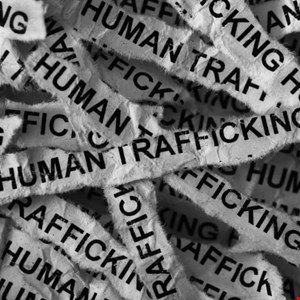- 실내 5G 시장, 2030년까지 연평균 22.1%씩 성장··· 생성형 AI도 성장 요인
- The Significance of Cybersecurity within AI Governance
- The Evolution of SOC: Harnessing Data, AI and Automation
- How to disable ACR on your TV (and stop companies from spying on you)
- I expected this cheap multitool to be a waste of money, but it's my new a toolbox essential
Global Police Track Human Traffickers in Online Crackdown

Police investigators from across the globe joined forces last month in a digital operation to identify human trafficking suspects and victims, according to Europol.
The latest edition of the policing agency’s EMPACT hackathon featured participation from 27 countries, including 19 EU member states plus Albania, Brazil, Georgia, Kosovo, Moldova, Serbia, Ukraine and the UK.
Led by police in Germany and the Netherlands, 76 experts came together over four days to investigate leads on internet-enabled trafficking.
It focused on attempting to identify indicators of illegal activity online, such as the misuse of “legal business structures,” social networks, cryptocurrency and gaming platforms, according to Europol.
In total, investigators were able to:
- Check 252 entities including platforms, individuals, usernames, locations and phone numbers
- Check 40 online platforms for sexual and labor exploitation and organ trafficking
- Identify 16 suspected human traffickers
- Identify 60 potential victims of human trafficking
Among the most shocking discoveries made by investigators was a dark website where hundreds of traffickers offer male and female victims for sale or hire.
Individuals are priced at $800-2000 per hour based on age and “skills,” while “home” boys or girls are apparently up for sale for $20,000-$60,000.
Read more on human trafficking: Euro Police Target Gangs Grooming Ukrainian Refugees Online
Investigators also sought to crackdown on exploitation of Ukrainian victims which has been ongoing since Russia’s invasion, and a disturbing new crime-as-a-service development known as “e-pimping.”
Two online platforms under investigation are apparently offering ‘lifestyle courses’ and training for men who want to become OnlyFans managers. In fact, the goal is essentially to learn how to become online pimps and exploit women, Europol said.
Despite the very real physical suffering of the victims, human trafficking is often enabled like many other crimes by digital means.
In fact, trafficked victims are also put to work in some parts of the world as digital fraudsters.
In December 2023, Interpol revealed that its Operation Storm Makers II initiative led to the arrest of 281 individuals on suspicion of human trafficking, passport forgery, corruption, telecoms fraud, sexual exploitation and other offenses.
Many of the 149 victims identified were lured to southeast Asia by social media ads promising lucrative jobs. However, on arrival they were forced to work for online fraud gangs.

